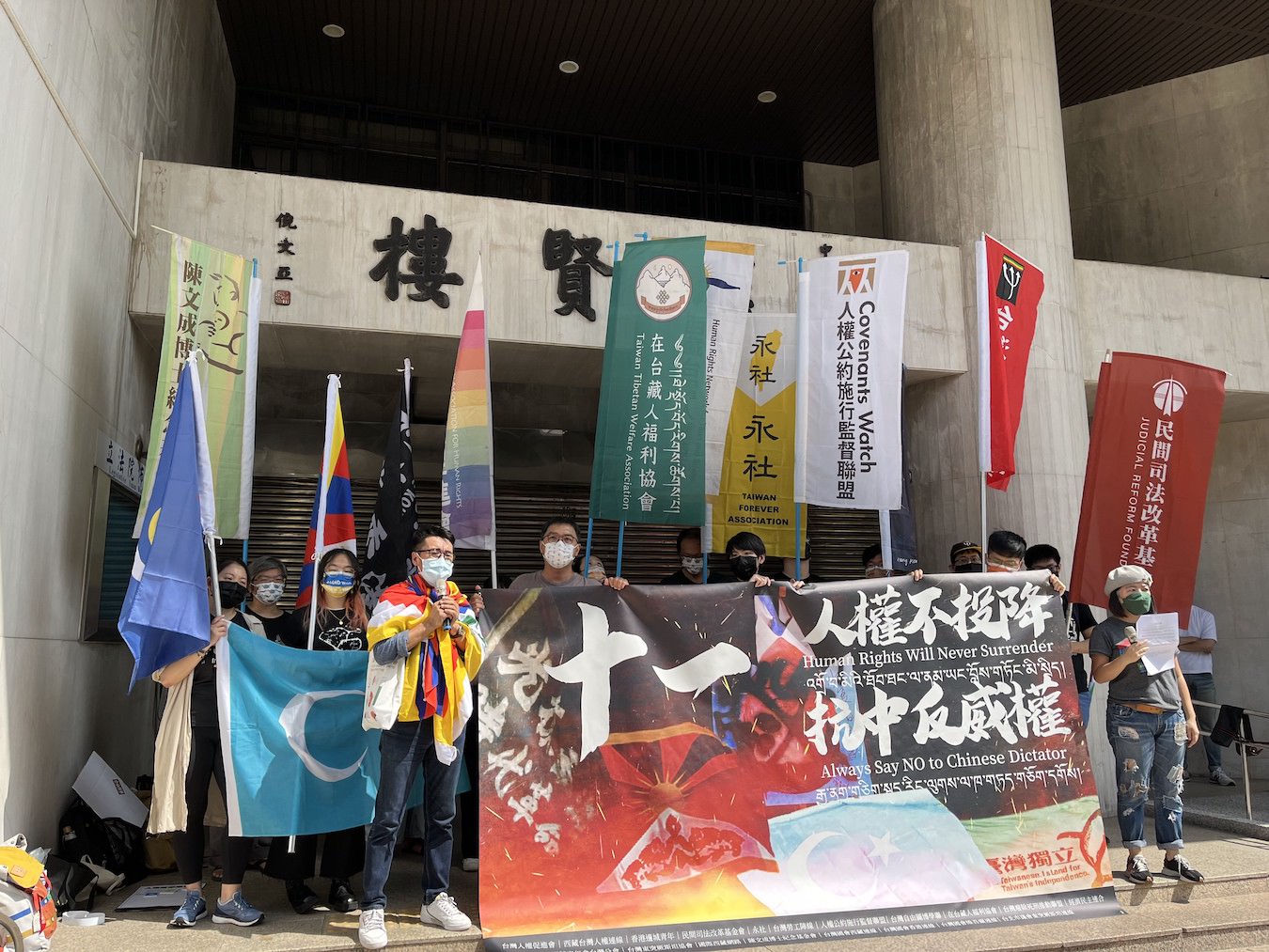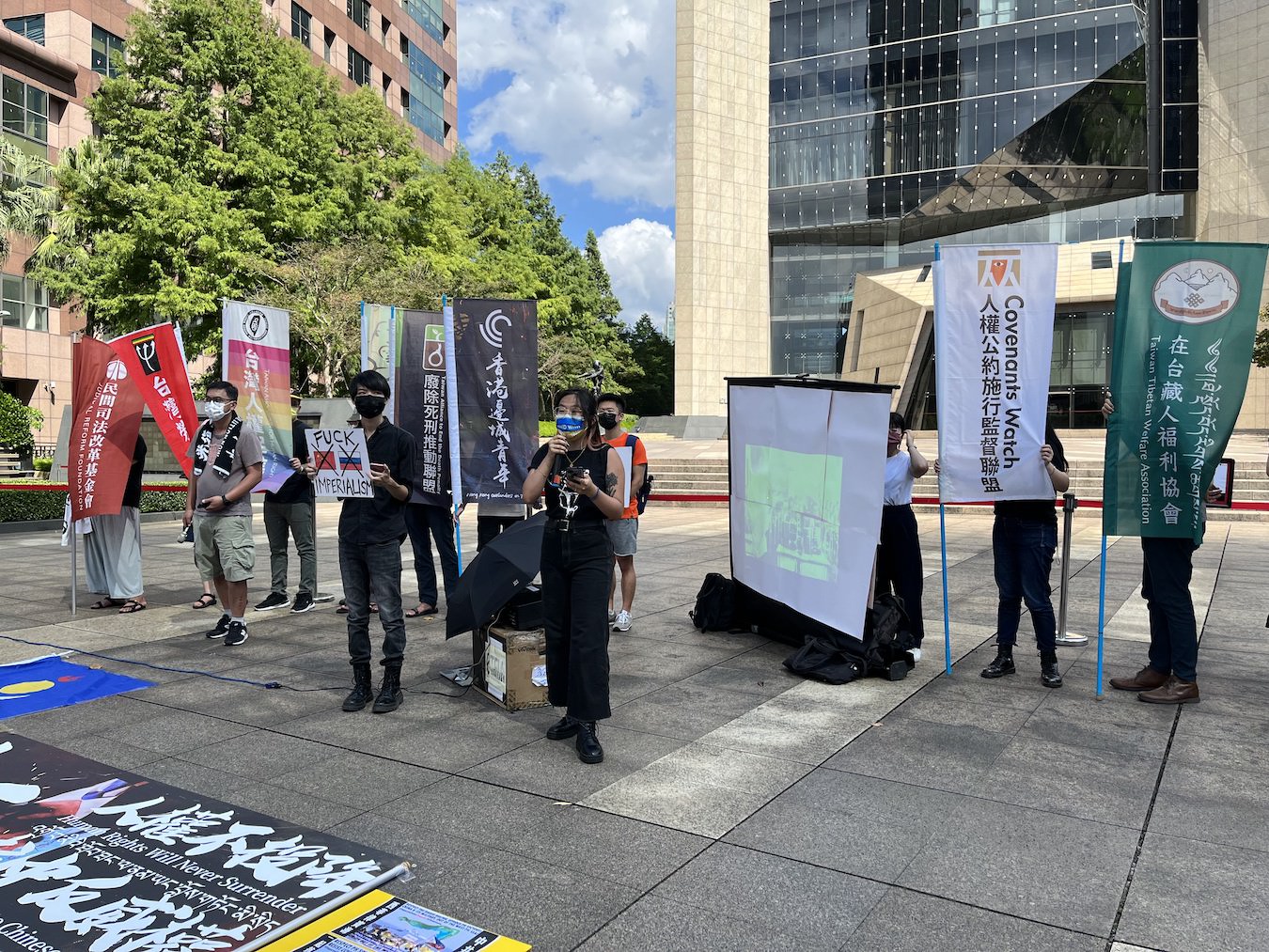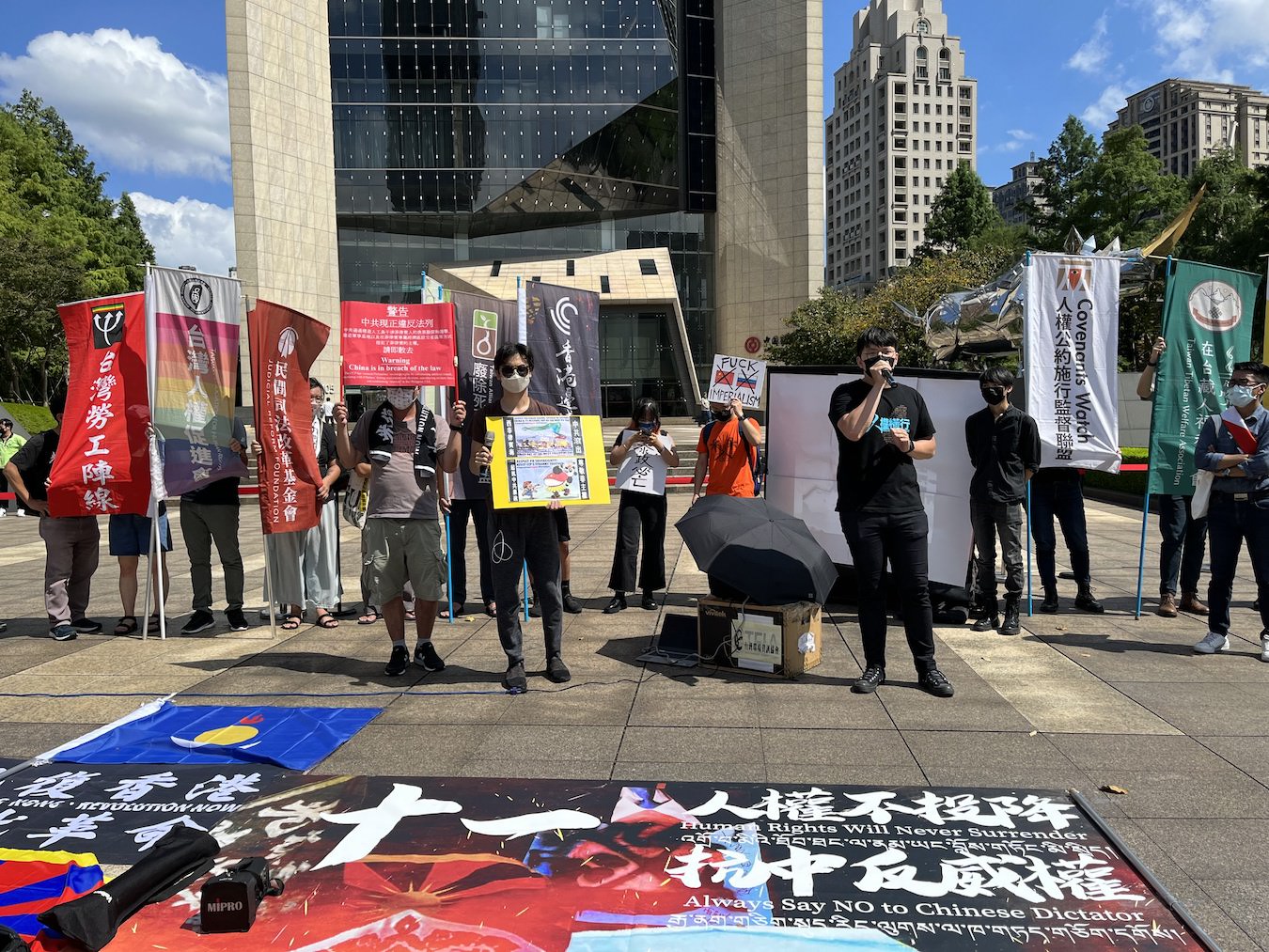by Brian Hioe
語言:
English
Photo Credit: Brian Hioe
CIVIL SOCIETY GROUPS demonstrated against Chinese National Day today in Taipei. Chinese National Day is commemorated on October 1st, which is tomorrow.
Groups involved included many of the stalwarts of Taiwanese civil society. This included the Taiwan Association for Human Rights, the Human Rights Network for Tibet and Taiwan, Taiwan Alliance to End the Death Penalty, Dr. Chen Wen-Chen Memorial Foundation, Economic Democracy Network, Taiwan Labor Front, and Covenants Watch. Groups representing the Tibetan and Hong Kong diaspora in Taiwan were also present, such as the Hong Kong Outlanders, Human Rights Network for Tibet and Taiwan, Taiwan Tibetan Welfare Association, and other organizations.
 Photo credit: Brian Hioe
Photo credit: Brian Hioe
The protest began with a press conference outside of the Legislative Yuan’s Qunxian Building at 10 AM near Shandao Temple, which lasted for around a half hour. Speakers included Shih Yi-hsiang, the secretary-general of the Taiwan Association for Human Rights, Tashi Tsering, the head of the Taiwan Tibetan Welfare Association, Sky Fung, the secretary-general of the Hong Kong Outlanders, and Hsu Guan-ze, the vice secretary-general of the Economic Democracy Union.
The press conference included participant organizations signing a pledge to uphold human rights in the face of China. Organizations that signed on attached a logo to a poster representing the pledge. The aim of this pledge is to get candidates participating in the upcoming elections to sign on, particularly a concern when pan-Blue or other candidates prove willing to compromise on such issues. Around twenty were in attendance, representing various civil society organizations at the press conference.
 Photo credit: Brian Hioe
Photo credit: Brian Hioe
Subsequently, at 12:30 PM, a rally was held in front of the Bank of China building in Xinyi in downtown Taipei. Past demonstrations for Chinese National Day have also taken place in front of the Bank of China, using the bank to stand in for the Chinese government, seeing as it is state-owned.
The demonstration had a similar number in attendance and was timed to coincide with lunchtime in Xinyi, where many business offices are located, to highlight human rights issues that Taiwan faces vis-a-vis China.
 Photo credit: Brian Hioe
Photo credit: Brian Hioe
One of the speakers at the rally was Lee Ming-che. Lee is the Taiwanese human rights NGO worker that was previously kidnapped by the Chinese government and imprisoned for over five years. In his comments, Lee pointed toward China’s actions in Hong Kong, Tibet, and Xinjiang as illustrative of the dangers of accepting One Country, Two Systems, as well as how it was the sacrifices of many predecessors that allowed for democracy in Taiwan.
During the rally, Shih Yi-hsiang stated that Taiwanese civil society groups were conscious of the threat that Taiwan faced from China, not only militarily, but also in terms of efforts by the Chinese government to affect Taiwan’s information environment or culturally. Nevertheless, Shih emphasized that Taiwanese civil society groups aimed not to rely on the US military or similar means to counteract China, but hoped for the establishment of a human rights mechanism in APEC–as one of the few international bodies that Taiwan has membership in. As such, Shih called on President Tsai Ing-wen not to send Morris Chang or other figures that more strongly have to do with the economy, but a figure related to human rights to APEC.
 Photo credit: Brian Hioe
Photo credit: Brian Hioe
In his comments, Tashi Tsering raised recent self-immolations of Tibetans, and suicides that took place with China using COVID-19 as a pretext to expand its surveillance state. Sky Fung discussed how resistance in Hong Kong to China has continued, despite protests being interrupted by COVID-19.
Gino Lopez spoke on behalf of Filipinos that stand for human rights, bringing up how successive presidential administrations in the Philippines have valued ties with China, while Yang Kang of Covenants Watch spoke regarding human rights as universal values, rather than specifically associated with any country. Several speakers, such as Aurora Chang, brought up parallels between China’s threats against Taiwan and Russia’s invasion of Ukraine, specifically about Russia’s denial of any independent cultural existence to Ukraine and its authoritarian actions. Other speakers highlighted China’s domestic labor abuses, such as the use of forced labor in Xinjiang for cotton.
Other events are planned related to Chinese National Day upcoming, such as a screening of the film Black Bauhinia by the Hong Kong Outlanders tonight. Efforts to raise awareness of the threat that China presents to Taiwan continue, as reflected in the rally and press conference today.

